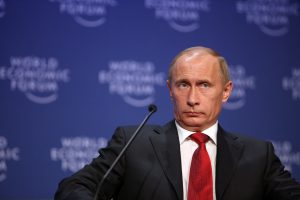It is said cautiously. It is said deliberately in a tone that is monotonous enough so as not to trigger “urgent” and “breaking news” on the press sites. This is, in a word:, Merkel, but how can one explain that the Chancellor’s words reported last week by the Financial Times were not more noticed and commented on?
“I consider the European Union to be our life insurance policy because Germany is far too small to exert geopolitical influence on its own,” she says at the very beginning. The Chancellor therefore now believes that it is in her country’s vital interest to exert influence in the international arena and that it can only do so through the EU. A German leader says about Germany what French leaders have been thinking and saying about France for so many decades. Wouldn’t this sudden convergence between the Union’s two leading powers be of more interest than this?
Quite on the contrary, it is a major development, but we do not know how to see it because we are so convinced today that the European unity is a utopia out of date. It has met its end, I am telling you! It is, in other words, so dead that we do not even hear Mrs Merkel explaining to the FT that Brexit is “a wake-up call”, that the Union is existential for Germany’s interests and identity and that it must be strengthened by moving forward with the integration of its debts, with the banking union and with a single digital market.
Quotation marks are rare in this article. More than an interview, it is a conversation in indirect style, a form that allows Merkel to imply what she could not have said directly without inflaming Germany and her own party. It is a trial balloon, but the Chancellor is not just calling on the Union to take on a geopolitical dimension. She also pleads for the digital independence of the 27 (a new “industrial policy”, as the FT says) and the need, of course, for a common Defence.
The transatlantic relationship “remains crucial”, she says, but noting that there are “structural” and therefore lasting causes for the United States’ lack of interest in Europe, she advocates developing the Union’s military capabilities, which should, she thinks, be able to “engage, for example in Africa” in areas not covered by NATO’s priorities.
Let’s see it then! Let’s say it then!
Political affirmation of the Union, common Defence and industrial policy, these three great ideas, which had been French and only French before, have now achieved a consensus. This was absolutely clear as early as last July, in the debates, on the corridors and in the committees of the newly elected Parliament. It had become obvious since Mrs Von der Leyen coined the term “geopolitical union” in her first speeches in Brussels. This is now confirmed by the Chancellor, who, although shaken by the enthusiasm of Emmanuel Macron, shares his sense of European urgency.
Far from being in agony, far from being already dead, the European Union is stretching and awakening. It is time to stop burying it and to realise that, on the contrary, it is coming back to life, electrified, defied, remobilised by Donald Trump, who has closed the American defensive umbrella, who is stirring up international instability and who sees us, above all, as industrial competitors that he might fight against.
Thanks to this man, thanks to the shock of his election and to the dismay he has aroused since 2016, the European unity is now entering the third phase of its history, political unity after trade and monetary unity.
We do not realize this. We do not even know how to see it, but it is so true that the Conference on the Future of Europe promoted by Emmanuel Macron will begin next spring. Alongside the European and national institutions, citizens’ panels will debate the changes to be implemented in the Union. In the Council, the Parliament, the Commission and, of course, in each of the Member States, these debates will be all the more lively and difficult because in this political moment, with the EU’s consolidation on the international stage, with the common Defence and with common investments we are getting to the heart of the matter.
Everything can break down because a common market with common institutions, a common currency, a common Defence and a common diplomacy are strongly beginning to look like a Federation, even made up of nation states. Challenged, awake, the Union has its back to the wall. It is going to sway, it will inevitably sway, but rise up, yes, rise up, you storms so desired.


